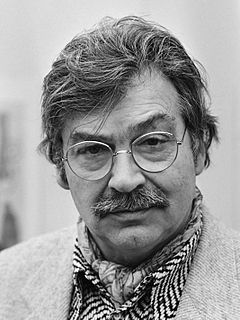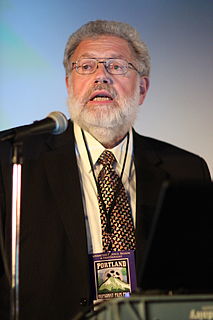A Quote by George Pattison
Religious life is about something real in human experience that is not constrained by what Wittgenstein called 'all that is the case'. In this sense Heidegger is not simply 'mistaken' - he just asks us, as philosophers mostly do, to think more carefully about what we're saying.
Related Quotes
I think one reason is that philosophers are more insecure to speak accessibly because non-philosophers are skeptical that philosophers have any special expertise. After all, all people - not just philosophers - have attitudes and points of view on various philosophical questions, and they rather resent being told that there are professionals who can think about these things better.
Real spiritual journey in life is the discovery of self. I think once you take all the religious bullshit away from Jesus Christ, it's saying it's about this journey of discovering who you are, and what's really important in life is simply love. That the journey of civilization, the journey of understanding, is forgiveness, is empathy. And that's what humanity is striving for.
The thing I think I have learned from Wittgenstein is the importance of not making things up: philosophers should not invent problems, and they should also be conscious of the risk of inventing pointless 'technical' machinery which do not offer real explanations, but often just re-state the known facts in a more complex way.
If, for instance, you put in a Malay officer who's very religious and who has family ties in Malaysia in charge of a machine gun unit, that's a very tricky business. We've got to know his background... I'm saying these things because they are real, and if I don't think that, and I think even if today the Prime Minister doesn't think carefully about this, we could have a tragedy.
In my case, I made the decision early on that I was going to be very open about the book and claim upfront that each of the stories was based on my life experience. I think my reasoning goes back to what I was saying earlier, about wanting the book to be "more than a book," that I wanted the reader to feel a little unsettled about what they were reading: there's a core of factual truth here.
Don't you think I have sense enough to worry about my motives for saying the prayer? That's exactly what's bothering me so. Just because I'm choosy about what I want - in this case, enlightenment or peace, instead or money or prestige or game or any of those things, doesn't mean I'm not as egotistical and self-seeking as everybody else. If anything, I'm more so!
We are not just bundles of atoms being pushed around. But, there's something spiritual about us whether we give that a religious interpretation or not. And so, it's that sense of there being dignity to life that I associate with the word God. I mean, that's probably a pretty radical and agnostic way of interpreting it. But, that's what I think.
Jazz is really about the human experience. It’s about the ability of human beings to take the worst of circumstances and struggles and turn it into something creative and constructive. That’s something that’s built into the fiber of every human being. And I think that’s why people can respond to it. They feel the freedom in it. And the attributes of jazz are also admirable. It’s about dialogue. It’s about sharing. And teamwork. It’s in the moment, and it's nonjudgmental.
Knowing a great deal about what is in the world art, catastrophe, the beauties of nature through photographic images, people are frequently disappointed, surprised, unmoved when the see the real thing. For photographic images tend to subtract feeling from something we experience at first hand and the feelings they do arouse are, largely, not those we have in real life. Often something disturbs us more in photographed form than it does when we actually experience it.
All I'm doing is being authentic and real and singing about the emotions I go through as a human being. I don't think we should be nervous about expressing who we really are when it comes to being a believer but also when it comes to being someone who goes through real life. You have to experience real life before you can understand what it means to really worship.
































